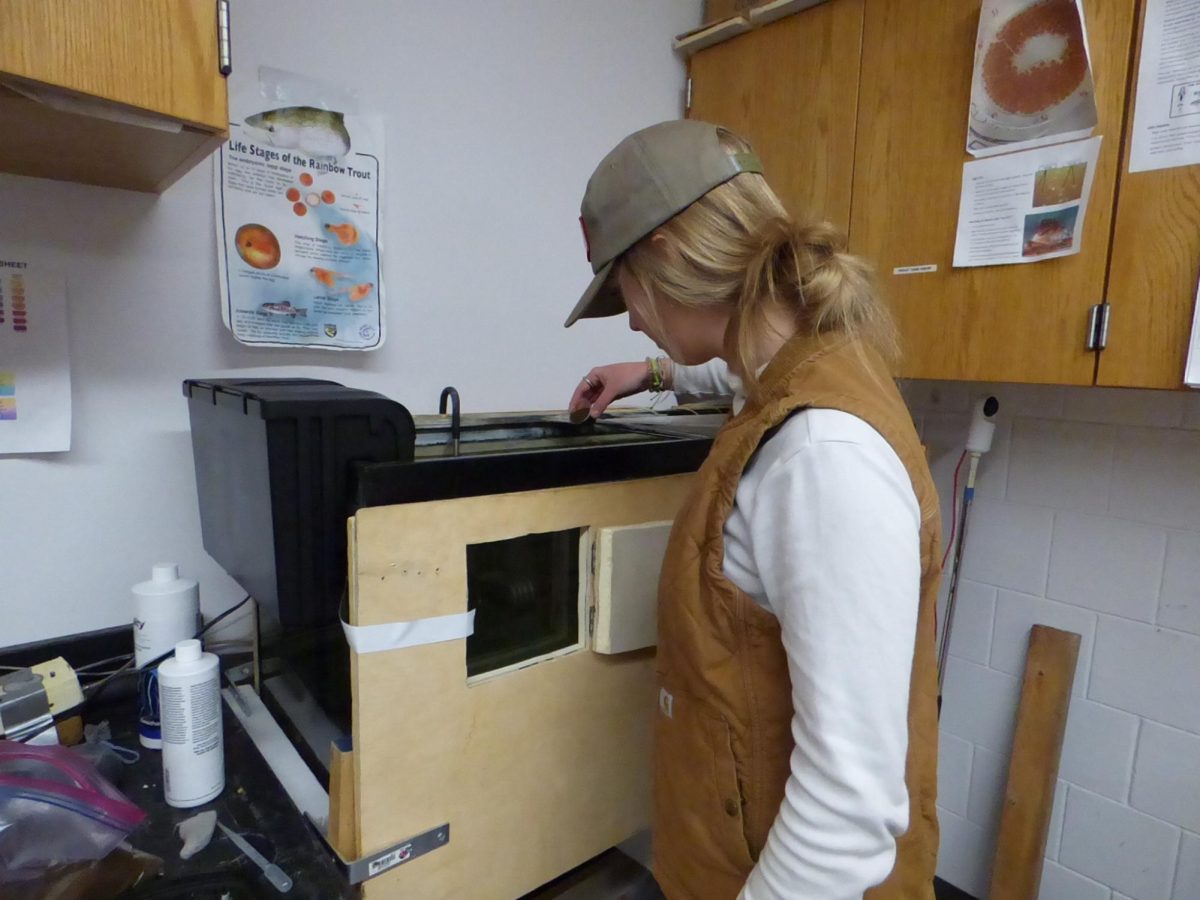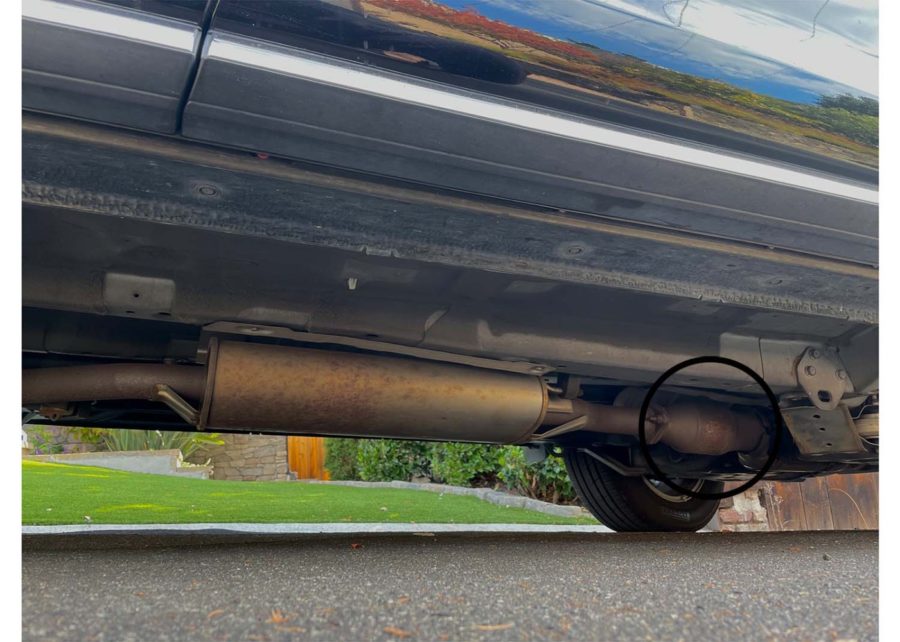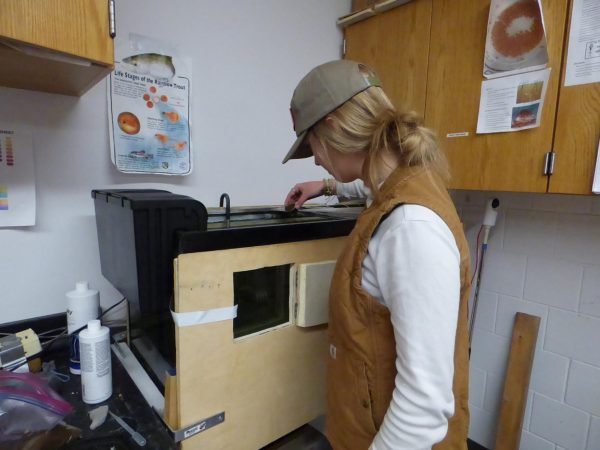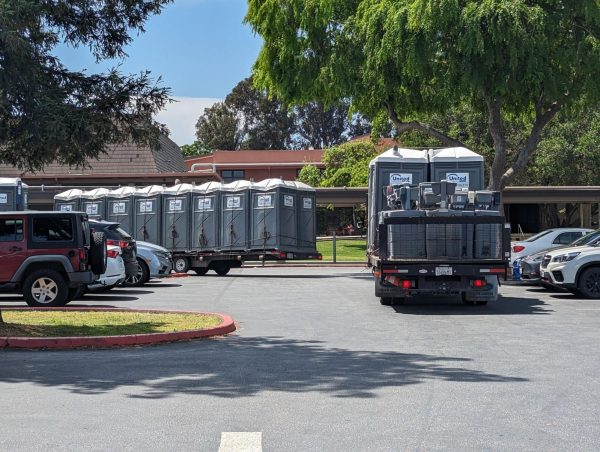Thieves drive off with catalytic converters
Catalytic converters are being stolen from cars and sold on the black market
In a car, the catalytic converter sits towards the front of the car, in front of the muffler.
October 28, 2021
Catalytic converter theft has been taking place in the Bay Area for years, but incidents dramatically surged in the past few years. As the value of the precious metals that make up catalytic converters increases, so does the number of thefts.
“Thefts of catalytic converters have skyrocketed from an average of 108 per month in 2018 to 2,347 in December 2020,” NBC News reported.
Catalytic converters are a part of a car that helps reduce emissions. They filter exhaust from car engines containing hydrocarbons, nitrogen oxides, and carbon monoxide – emissions that inflict significant damage to the environment — into less harmful byproducts such as water vapor and carbon dioxide. Because of this, they are a crucial and necessary part of a car.
It takes thieves about one and a half to two minutes to steal a catalytic converter. They take a flashlight and a battery-powered saw, cut the pipes holding it in place, and then run off before police can catch them.
It is not the catalytic converter itself that thieves want, but the rare metals it contains. Three to five grams of platinum, palladium, and rhodium make up this part of a car. Rhodium is currently selling for $28,000 an ounce, making it a very valuable commodity.
The pandemic has decreased the production of these metals, giving them a value 15 times higher than gold.
While the catalytic converter is only a small part of the car, it costs $3,000 to replace.
“Thankfully, because I have comprehensive coverage with USAA, I only had to pay my deductible of $500 instead of the estimated $3,000,” Groff said.
In addition to the price, these thefts have also inconvenienced many citizens by preventing them from using their car (until they have it fixed).
“It was a pain because we were at the time moving and the van was really good to move stuff, and we couldn’t use it when we had to move,” Josh Engberg said.
Toyota Priuses are the top target. Their catalytic converters contain more precious metal compared to other cars of similar size, making them more enticing for thieves.
Citizens have taken multiple steps to prevent these thefts by installing a shield under the car and engraving their license number on the catalytic converter itself. Some people, however, believe the engraving won’t stop the thieves.
“The police department suggests having your license number engraved on the converter stops people from stealing them,” said Tim Gordon, a citizen of San Carlos who had his catalytic converter stolen. “However, the people aren’t reselling them, they are removing the precious metals from them. The people that are doing this don’t care if there is a license number on them or not.”
The shield, however, has proven to be effective.
“I ended up installing a Cat Security shield for $260, and I have had no issues since,” Groff said.
It would be convenient if car companies would supply a shield to protect the part before selling. However, they don’t have the incentive to protect your catalytic converter from being stolen.
“I’ve heard car companies could put a [catalytic converter shield] in there. But the car companies, when they sell new catalytic converters, they also make money, and they don’t really have much incentive to put the guards on,” Engberg said.
This story was originally published on Scot Scoop News on October 22, 2021.































![IN THE SPOTLIGHT: Junior Zalie Mann performs “I Love to Cry at Weddings,” an ensemble piece from the fall musical Sweet Charity, to prospective students during the Fine Arts Showcase on Wednesday, Nov. 8. The showcase is a compilation of performances and demonstrations from each fine arts strand offered at McCallum. This show is put on so that prospective students can see if they are interested in joining an academy or major.
Sweet Charity originally ran the weekends of Sept. 28 and Oct. 8, but made a comeback for the Fine Arts Showcase.
“[Being at the front in the spotlight] is my favorite part of the whole dance, so I was super happy to be on stage performing and smiling at the audience,” Mann said.
Mann performed in both the musical theatre performance and dance excerpt “Ethereal,” a contemporary piece choreographed by the new dance director Terrance Carson, in the showcase. With also being a dance ambassador, Mann got to talk about what MAC dance is, her experience and answer any questions the aspiring arts majors and their parents may have.
Caption by Maya Tackett.](https://bestofsno.com/wp-content/uploads/2024/02/53321803427_47cd17fe70_o-1-1200x800.jpg)
![SPREADING THE JOY: Sophomore Chim Becker poses with sophomores Cozbi Sims and Lou Davidson while manning a table at the Hispanic Heritage treat day during lunch of Sept 28. Becker is a part of the students of color alliance, who put together the activity to raise money for their club.
“It [the stand] was really fun because McCallum has a lot of latino kids,” Becker said. “And I think it was nice that I could share the stuff that I usually just have at home with people who have never tried it before.”
Becker recognizes the importance of celebrating Hispanic heritage at Mac.
“I think its important to celebrate,” Becker said. “Because our culture is awesome and super cool, and everybody should be able to learn about other cultures of the world.”
Caption by JoJo Barnard.](https://bestofsno.com/wp-content/uploads/2024/01/53221601352_4127a81c41_o-1200x675.jpg)













